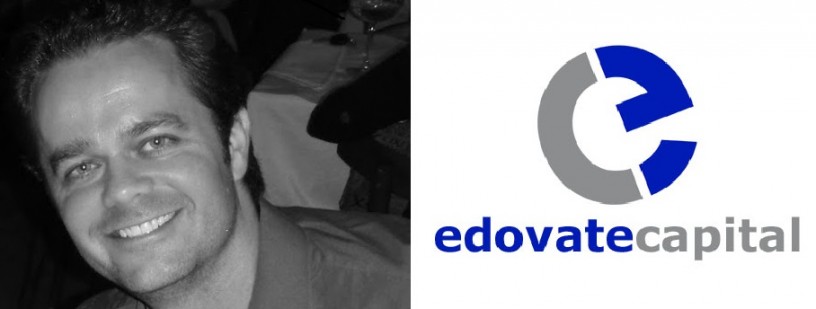In the spotlight:
Name: Graham Forman
Location: Denver, CO
Occupation: Founder and Managing Director of Edovate Capital. I invest in and advise educational technology entrepreneurs and their teams.
You are an influential individual within the entrepreneurial space. What does ‘enterprise education’ mean to you, and why do you think it’s important?
Students rely on institutions (schools, districts, colleges, universities) to support them in developing the skills and competencies that they need to be successful in education, work, and life. These institutions are enterprises in the sense that – like any business or company – they have a mission, and customers and employees that depend on them to reach goals.
You are the founder and managing director of Edovate Capital, a seed and early stage venture capital company that aims to help young companies grow within the education market. What inspired you to set up your business?
I was an education technology entrepreneur for fifteen years, and had success doing it in this field thanks to many wonderful mentors. I was inspired by them to want to support emerging entrepreneurs by investing in and advising them on their path to success. I believe that education is going to change more in the next thirty to forty years than it has in the last thousand, and I want to be part of catalysing that transformation.
What have been Edovate’s biggest achievements – and biggest challenges – thus far?
I’m excited that we’re building a real community around education entrepreneurship and impact-focused entrepreneurs in Colorado and beyond. There are hundreds of people in Colorado who are supporting one another and pursuing innovation in education, and I am proud to be a part of building that community.
Companies in my investment portfolio have grown to positively impact learning outcomes for millions of students, and to empower hundreds of thousands of teachers and administrators.
Education transformation is very challenging. I believe that systems were built well to grow citizens and workers for the “industrial age”, but that these systems have been slower to transform to meet the needs of the current “knowledge age”. It takes a lot of heavy-lifting to adapt our education systems for the knowledge age, but I’m excited about pockets of innovation that I’m seeing and optimistic that we’ll see more scale in the years to come.
You sit on the board of the Colorado Education Initiative and have worked tirelessly to advance educational innovation. How much progress has been made – and what still needs to be done to support students?
There are many examples of innovation happening at the classroom and school level in Colorado, which I’m very excited about. We have innovative schools both in traditional school districts and in charter schools. We want to shine a bright light on those wonderful examples of 21st century learning for students, and professional development for educators and administrators. However, we haven’t achieved scale yet so that all students can have 21st century learning opportunities guided by great teachers. I believe that – in order to transform schools at scale – district systems need to transform as well. Like so many bureaucracies, it takes great leadership and hard work to transform them into innovative organisations.
Where do you hope to see enterprise education in five years’ time?
I’m very excited about experiential educational approaches – like problem-based and project-based learning – that encourage self-directed learning and student agency, and give students context on how to think about tackling real-world problems. Students need not just academic skills, but also socioemotional, civic, and entrepreneurial skills. The research shows that project-based learning is effective in engaging students at a deep level and developing these skills.
What does a typical day look like in the world of Graham Forman?
There’s lots of variety to my day: I split my time between meeting with and advising entrepreneurs from all across the US who are passionate about problems they’re solving in education, and building a community around education entrepreneurship right here in Colorado.
And finally, Graham, tell us: if you were an animal, what would you be and why?
It’s funny that you ask. My family tells a story about my favourite animal when I was five years old. So, while most kids said their favourite animals were puppies, kittens, horses, bunny rabbits, etc., my favourite animal was a sperm whale. Sperm whales are extremely large, mysterious and very rare. I’ve always been a bit of a contrarian and independent thinker by nature and I think the sperm whale speaks to that.





Leave a Reply